In Praise Of Nests and Other Things by Thomas Savage
These towering seaside structures imagined by Northumbria University student Thomas Savage would offer habitats for wild birds in winter and house water sports enthusiasts during the summer.
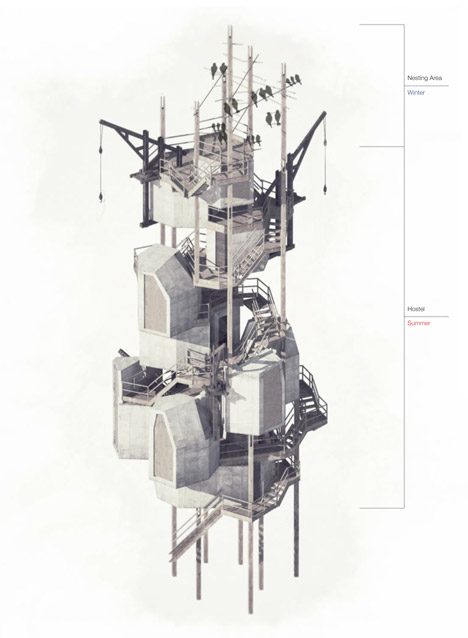
Thomas Savage developed the concept for the coastal stretches outside Blyth, a port town in northern England where industrial industries are in decline and the local community is keen to promote more sustainable technologies and activities.
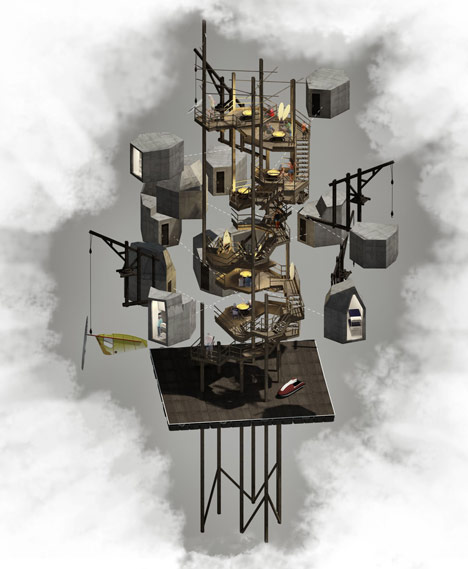
"The brief was to produce a museum with hostel accommodation," Savage told Dezeen. "I found out that the town already had both an ornithological society and a water sports community. Both are active in different seasons, so I realised I could bring them together."
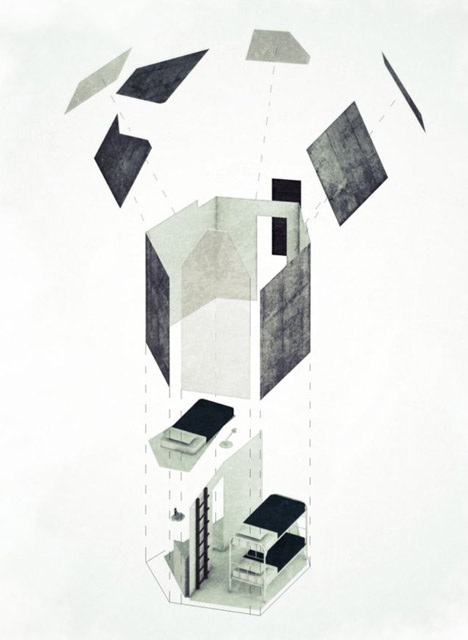
He proposes a series of nine-storey hostel towers along the beach, comprising steel scaffolding and concrete cabins. In the summer and autumn seasons these spaces would form a campsite, with communal areas for preparing food and storing equipment, while during the winter and spring the cabins would be boarded up to create protected nesting areas.
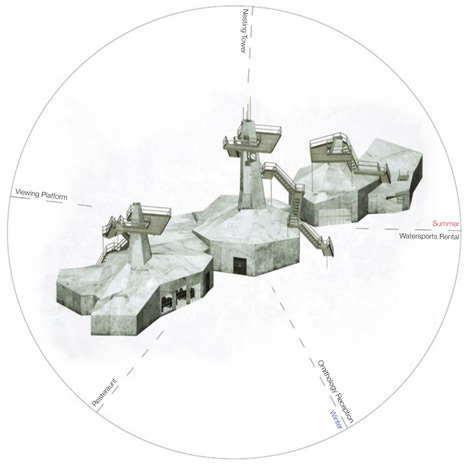
Birds would access the spaces through tunnel-like openings in the roof and birdwatchers would be able to climb up around the surrounding staircases and platforms.
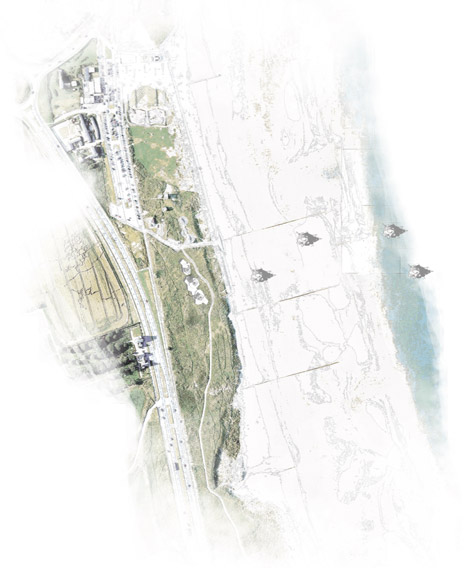
A visitor centre would be located nearby, on the banks above the promenade.
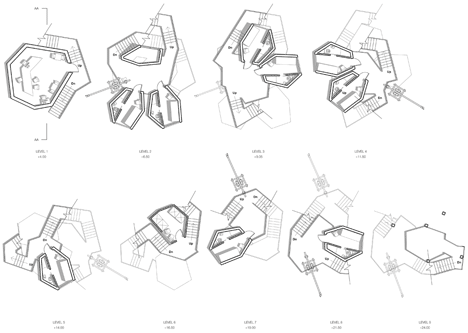
In Praise Of Nests and Other Things is the graduation project for Savage's Part I architecture degree at Northumbria University, under tutor Sebastian Messer.
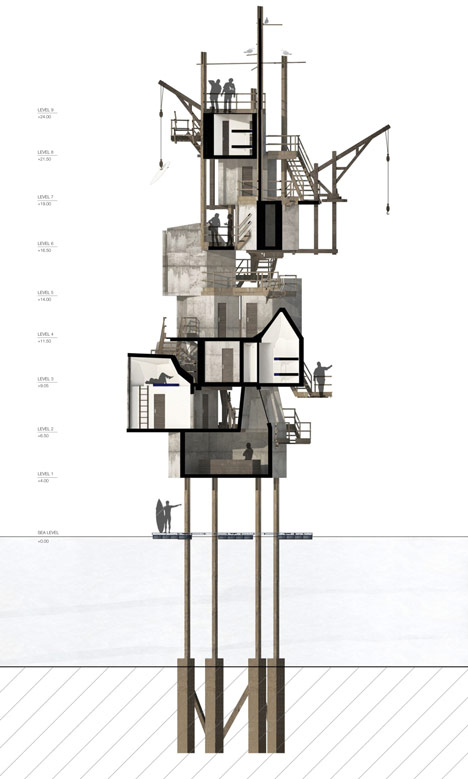
Other graduate projects featured on Dezeen include a shape-shifting ballet school and conceptual towers designed to replace bees.
Here's a short text from Savage:
In Praise Of Nests & Other Things
The project is located on the outskirts of Blyth, the most populous town in Northumberland. The port remains active, but Blyth's legacy of heavy industry has slowly been replaced with offshore and clean energy technologies. The project seeks to capitalise on the extraordinary, sweeping beaches of the north east coast. A distinct change in visitors and uses occurs between winter and summer. This is highlighted by the project, which switches functions (for its human inhabitants) between bird-watching in winter and spring and water sports in summer and autumn. The scheme provides for both human and avian occupants to take temporary 'roost', each during their season.
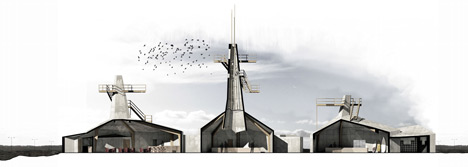
The scheme has two sites: the visitor centre on the banks above the promenade and the hostel towers on the beach and in the water. The two buildings are linked by raised reciprocal views from viewing platforms that wrap around the structures.
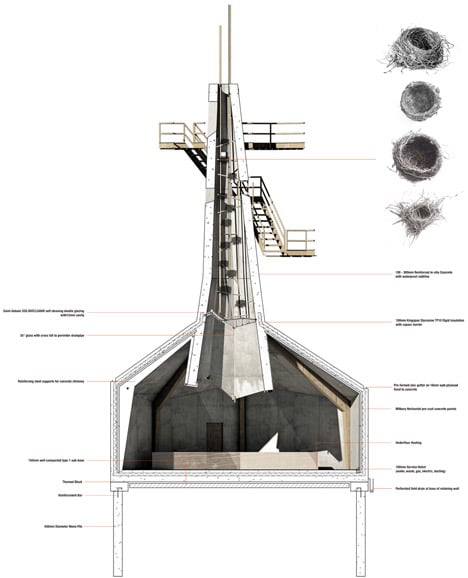
The original concept designs were made from off cuts of other architectural models, mimicking the nature of birds' nests which depend on found materials in their construction. These were photographed, superimposed and recombined to begin to define an architectural language.